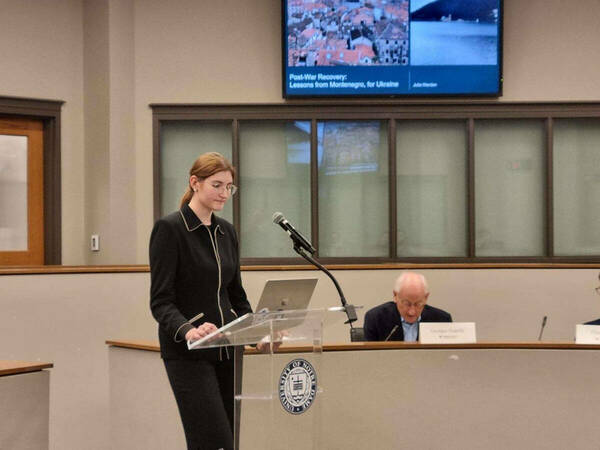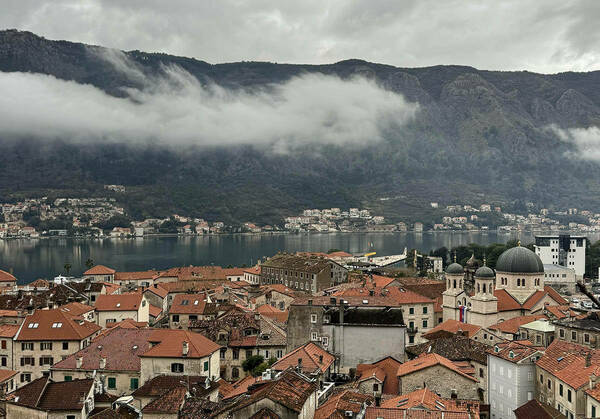
Julia Warden ’24 is a business analytics and film major. During the winter 2024 break, she traveled to Montenegro to complete research with support from the Nanovic and Ansari Institutes at the Keough School of Global Affairs. She was also a presenter at the first Nanovic Undergraduate Research Conference in European Studies.
In January 2024, with the support of the Nanovic Institute for European Studies and the Ansari Institute for Global Engagement with Religion, I conducted independent research in Montenegro. My project focuses on Montenegro’s evolution amidst shifting geopolitical landscapes and national narratives through its modern history, including its post-World War II communist rule, the dissolution of Yugoslavia in the 1990s, and its declaration of sovereignty in 2006. These periods are used to analyze Montenegro’s present situation, along with predictions and insights for the future. By analyzing government structure, economics, media, sports, religion, and more, I aim to understand the interplay of influences that contribute to soft and hard power. Central to my discussions is Montenegro’s relations with neighboring countries, alongside influences from the European Union and the East. Its aging population of 600,000 and location along the Adriatic Sea, along with an influx of immigration from the Middle East and other parts of Europe, add layers of complexity. Additionally, the second part of my paper incorporates Ukraine to offer a comparative analysis, drawing lessons from each of the two for broader insights, particularly by highlighting their ties through the fall of communism in Eastern Europe and their related religious, cultural, and linguistic roots.
Engaging with a diverse array of individuals—including students, businesspeople, government officials, and locals—has been the greatest learning experience and most enjoyable part of my project. Their hospitality and insights underscored the interconnectedness of Eastern Europe, emphasizing the importance of nuanced perspectives and comprehensive analysis of geopolitics. While my interviews provided many valuable insights, they also generated further questions shaping the trajectory of my ongoing work. Recognizing the importance of the topic to those I interviewed, my goal is to highlight Montenegro’s overlooked narrative to draw parallels with Ukraine to inform strategies on international development and resource allocation.

This project has also refined my skills in research methodology and analysis. I presented my findings at the Nanovic Undergraduate Research Conference in European Studies, which helped me focus the trajectory of my project going forward. The paper is now roughly 45,000 words with over two hundred cited sources, and I am working on refining it as I follow up with interviewees and emphasize certain messages. This project has also been special to me as it touches on the heritage of my relatives, some of whom have familial roots in Montenegro among other Balkan countries. I could practice my skills speaking the local language and reading the Cyrillic alphabet.
I am grateful for this wonderful experience and wholeheartedly encourage others to pursue similar opportunities at Notre Dame. Thank you to Nanovic and Ansari for everything, along with my family and friends who have supported me along the way… and of course, everyone who has put away the stacks of books I’ve taken from the Slavic section on the eighth floor of Hesburgh.

Originally published by at nanovicnavigator.nd.edu on May 10, 2024.